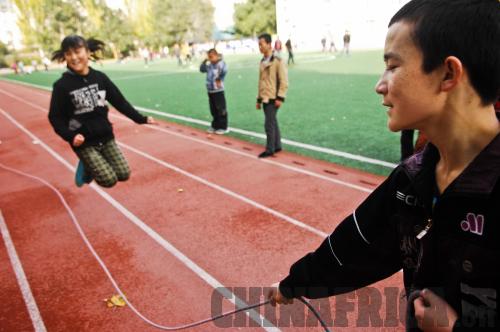|
Judicial Reform
China
The Chinese Government in October issued a white paper on the progress made in enhancing justice and protecting human rights. The white paper, the first of its kind, says that the ultimate purpose of judicial reform is to improve social fairness, justice and human rights. Improving human rights is vital, the white paper says, citing a 2012 amendment to the Criminal Procedure Law. In terms of protecting human rights, effective measures are being taken to deter and prohibit the obtainment of confessions through torture, protect the rights of criminal suspects and defendants and protect the right of attorneys to do their work. Measures are also being taken to strictly control the use of the death penalty.
Overseas Study Exodus
China
Some 339,700 Chinese went overseas for further study in 2011, leading the world in terms of students sent overseas with a proportion of 14 percent. The Report on the Development of China's Overseas Study, issued recently by the Social Sciences Academy Press, cites growing incomes, inadequate domestic education resources and favorable policies as the source of Chinese students' enthusiasm for studying abroad. The report notes that a growing number of students from renowned high schools are choosing to skip China's college entrance exams to begin higher education overseas.
 |
|
AN EYE ON EDUCATION: New regulations for school inspections are set to level the playing field for students |
Educational Inspections
China
The Chinese Government published the Regulation on Educational Inspections recently, aiming to improve quality and fairness in education. Inspections will focus on the management of faculty, safety and hygienic conditions, compulsory education and the fair distribution of education resources, the regulation states. It also gives inspectors authorization to review the financial records of schools within their jurisdiction.
 |
|
FUTURE GOALS: China is starting to transform itself from a manufacturing powerhouse into a center for technological innovation |
R&D Targets
China
China aims to become a world technological power by 2049 and strives to be a leading nation in innovation and scientific development, according to a document released by the Central Committee of the Communist Party of China and the State Council, the nation's cabinet, giving opinions on "deepening technological system reform and accelerating national innovation system construction." The document sets the goal for the country to be "in the ranks of innovative nations" by 2020. China's R&D funds nationwide should reach 2.2 percent of its GDP during the 12th Five-Year Plan (2011-15) period, and more than 2.5 percent by 2020, it says.
|